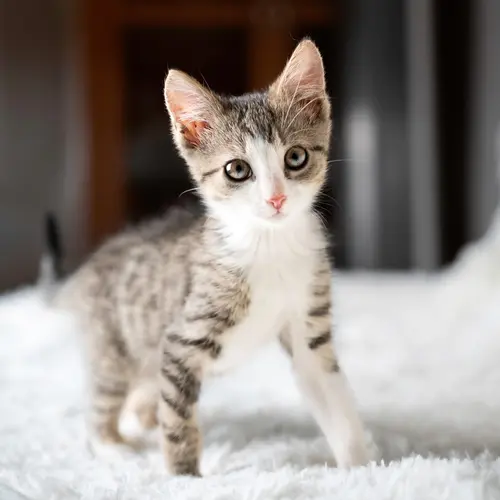Guinea pigs, with their small size and cute appearance, are popular pets. They are larger than gerbils or hamsters, but still small enough to fit into apartments or small houses. Guinea pigs don't need outdoor space. They don't have complicated dietary needs either. They make nice companions for people who like having small pets.
If you have lived with guinea pigs for any length of time, you might notice that they're chatty little creatures. They make a variety of sounds. These range from loud squeaks to soft purrs. They even chatter their teeth sometimes.
Learn more about the noises guinea pigs make and what they mean.
Chattering Teeth
You may have heard your guinea pigs chatter their teeth together. They may also make a whining noise together with the rapid clicking of their teeth. Your first instinct might be to wonder if your pet is cold. When humans are very cold, we shiver and our teeth chatter involuntarily. That's not the case with guinea pigs, however. The sound of their teeth chattering is meant as a warning to others around them.
Agitation signals. When a guinea pig starts chattering their teeth, it usually means that they are angry or annoyed. They'll often do it when meeting a new guinea pig. The chattering notifies other guinea pigs to respect their territory and stay at a distance. Chattering can be a precursor to two guinea pigs fighting. If you hear that noise, it's a good idea to separate your pets.
Upset or intimidated. Guinea pigs might also chatter their teeth if they're upset at or intimidated by something that their human is doing. Your pet might chatter their teeth if you're doing something they don't like, such as trimming their nails. They might start chattering while you're holding them to tell you that they are ready to go back into their cage. A mother guinea pig might do it defensively if you get too close to her babies.
Other Guinea Pig Sounds
Guinea pigs don't just make noise when they're angry or upset. They have a whole range of noises that they make to express all of their moods.
Wheeking. This is the noise most commonly associated with guinea pigs. It's a high-pitched series of squeals. It usually means that they want some food. Your pets may start wheeking when they know you're bringing food. Some will even start clamoring for treats any time they see their owners approach.
Purring. Guinea pigs purr, but it's not the same as a cat's purr. It's more of a low, soft tone, almost like a hum. This is a sound that guinea pigs make most often. Unlike cats, they don't purr only when content but can also purr when upset.
Rumble. Rumbling is often accompanied by a swaggering strut. It is the noise guinea pigs make as a precursor to mating. Both sexes use rumbling and strutting as a signal that they're ready to get busy.
Shrieking. Shrieking can sound like wheeking. It's the sound of pain or alarm. You can expect to hear it when you're not in the room. It’s not a noise guinea pigs make when they are simply hungry or hoping for treats. If your guinea pig starts shrieking, you should check on them to make sure that they aren't injured.
Mother and baby sounds. If your guinea pig has had a litter of pups, you might notice that the mama pig and her babies communicate through small noises. They will share chirps and squeaks to keep track of one another.
Watch Their Body Language
Sounds aren't the only ways guinea pigs communicate how they feel. Their body language is another way they express themselves.
Motionless. You might notice that your guinea pigs stop suddenly and freeze for a moment. This is a defensive reaction that they use when they hear or see something unexpected. They stop and then wait to see if there is a real threat. They might run and hide if they're unsure whether they are safe.
Explore and munch. A calm, happy guinea pig will move around their cage, eating and exploring. They'll interact with cage-mates or settle down for a rest under a blanket or in a shelter.
Popcorning. If your guinea pig is very happy, you might see them hopping up and down. This is a movement known as "popcorning." They might enjoy playing with people at times in this fashion.
The more time that you spend observing your guinea pigs, the more familiar you will be with what their noises and actions say about their moods. You'll be able to tell when they're happy, ready to play, scared, or agitated.
With a better understanding of what they're trying to tell you, you and your pets will enjoy one another's company even more.

